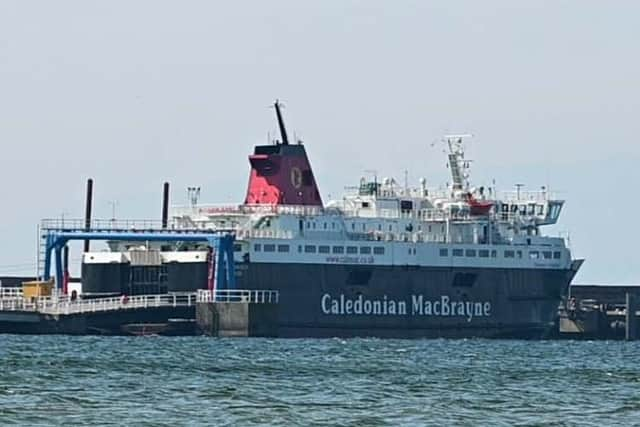CalMac ferries: We need informed debate on its future not political conspiracy theories and slanging matches – Alastair Dalton
But that’s hardly surprising when they are about islands that people have no other way of getting on or off, and being supplied with creature comforts and everything else.
Everyone’s got a view, but it’s not always informed, however dogmatically their case is argued.
Advertisement
Hide AdAdvertisement
Hide AdThat’s often proved a problem when I’ve tried to establish who is speaking sense.


Unlike other forms of transport, which have respected “experts”, even if not everyone agrees with them, finding people in the ferry world who know what they’re talking about but don’t have an axe to grind has proved very difficult.
But it goes further than that. I’ve been taken back by the slanging match between some senior industry folk and the academics and other commentators who regularly pontificate about how badly Scotland’s west coast ferries are run.
One high-up executive in the former category told me that some of those in the latter “know nothing, absolutely nothing”.
Meantime, the latter bunch regularly castigate the former by accusing them of chronically inept stewardship that has created an inefficient service with overinflated costs.
In trying to pinpoint the light in all this heat, I could do without the additional and unexpected headache caused by others who have accused me of exaggerating the impact of ferry disruption for nefarious political ends.
The current significant reduction in vehicle capacity on the main Arran route, caused by the breakdown of its principal ferry and the substitution of a smaller vessel, has caused a sizeable reduction in visitor numbers and bookings, both the island’s largest paid tourist attraction and biggest hotel told me.
But that wasn’t good enough for some on social media, who suggested that rather than simply attribute such comments to the organisations who made them – the National Trust for Scotland which runs Brodick Castle, and Auchrannie Resort – I shouldn’t have included them in my story unless I had independently verified what they’d said.
Advertisement
Hide AdAdvertisement
Hide AdThe problems with Caledonian MacBrayne’s west coast ferry service are complex, but at their core seems to be the failure to renew the fleet quickly enough to keep it both resilient and able to meet the extra demand fuelled by fare reductions to bring the cost of travel on water into line with that on land.
Ministers who have progressively extended this “road equivalent tariff” scheme across the CalMac network since 2008 apparently took no account of the potential capacity problems it could cause to the extent that we now have a service, at least as far as demand is concerned, that has become a victim of its own success.
This has now been compounded by an ageing fleet which appears to be suffering more frequent breakdowns, with the consequent greater impact because of the larger number of passengers such disruption now affects.
Transport minister Jenny Gilruth, who was appointed three months ago – and has been so busy I bet she feels it’s passed in a flash – gets this, but whether she’ll be able to win a larger ferry budget to accelerate the vessel replacement process is another question.
For the moment, she needs to channel all the interest that ferries generate to lead an informed national debate about a feasible future shape for the service.
Comments
Want to join the conversation? Please or to comment on this article.
